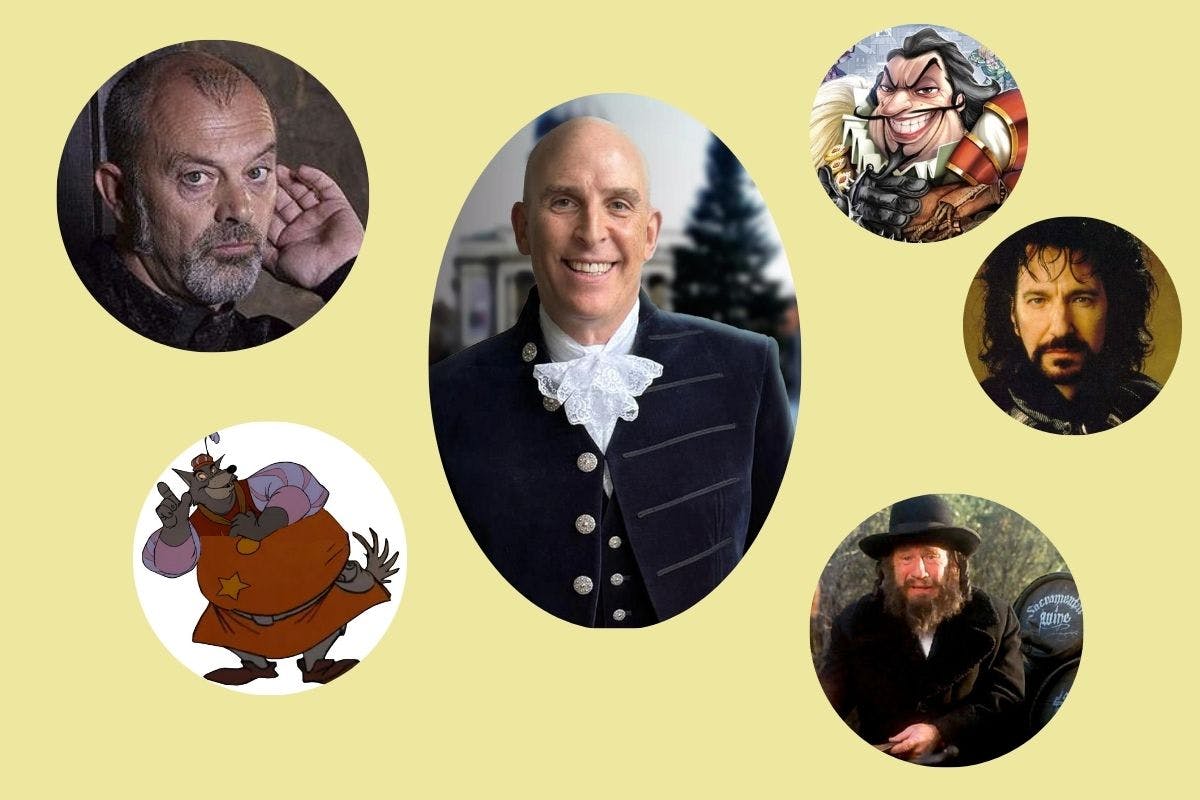Published: 1 December 2023
Last updated: 5 March 2024
Bad timing for a play mired in antisemitism? BEN MARGALITH, director of a new production of Shakespeare’s most controversial play, doesn’t agree.
The Melbourne Shakespeare Company’s newest production is an uncomfortable choice for the local Jewish community already burdened by the toll of rising antisemitism.
The Merchant of Venice, set to run from December 1–23 in St Kilda’s Botanical Gardens, is always problematic and contemporary directors and actors, many of them Jewish, struggle with how to deal with play’s antisemitism. It’s natural to question the timing and necessity of the play in the wake of the October 7 attacks and the rise in antisemitism which has accompanied the Gaza War.
But director Ben Margalith – who is Jewish and has family in Israel – says the current climate presents a perfect opportunity to open a critical dialogue about identity, bias and discrimination.
“I don't think there's ever a perfect time to stage a play and tragically, antisemitism is a scourge that's affected the community long before this play was written and has sadly continued through to this day,” Margalith told Plus 61J Media.
“From our perspective, art is meant to inspire, it's meant to move people, it's meant to challenge people, it's meant to create hopeful thoughts and reflection – and our hope is that [The Merchant of Venice] will lead to more active conversations.
“I think it's always a perfect time to engage in and open ourselves to a conversation of the effects of antisemitism.”
To help educate audiences, several matinee sessions will conclude with a “talkback” conversation between the cast, crew and audience to unpack the themes of the play. A content warning will also be included for those who may not be familiar with the subject matter.
Margalith said the backdrop of the Gaza War had already prompted conversations with members of the public who have passed by the park during rehearsals. Ticket sales have not noticeably been impacted and he is not concerned about security.
“The play is about people assuming things about other people without getting to know them, based on labels that they've placed on them,” he added.
“The play isn’t meant to live in a vacuum. I think in a true exploration of the play, after seeing it, you’re left ready to engage in its topics.”
Margalith’s adaption incorporates several much-loved Hebrew and Yiddish songs, such as Hava Nagila, Tumbalalaika and Eli, Eli.
“Doing anything right now that [involves] Jewish content is suddenly problematic. But art has the power to build bridges and make connections."
Shelley Krape, who plays Shylock in The Merchant of Venice
The most impactful change, however, is the depiction of the character of Shylock. The greedy Jewish moneylender is reimagined as a self-made entrepreneurial Jewish mother encountering the systemic injustices she experiences living in a male-dominated Christian society.
Shelley Krape, the actor playing Shylock, hopes these changes help to elicit a greater sense of humanity and understanding among viewers.
“I'd like [the audience] to feel connected to Shylock and feel empathy for her story and the journey that she has had during the play. And to get a sense of the challenges the Jewish people have faced for a very long time. That's what's so terrifying – this was written around the 1600s and it's still such an issue today,” she said.
Krape, who is also Jewish, admits she is “worried” about the timing of the play and its reception by a Melbourne community divided by ongoing protests and political debate.
“Doing anything right now that [involves] Jewish content is suddenly problematic. But art has the power to build bridges and make connections. I hope that particularly Jewish audience members come away from [the play] not feeling bad but feeling connected to a long Jewish story of people having lived subjugated lives, and that we've survived and thrived – and we will again.”
But while huge efforts have been made to celebrate the Jewish experience, the script stays true to the original Shakespearean text, which means several racist phrases and the depiction of Shylock as villainous remain.
It’s a decision that Krape agrees with, arguing that making such drastic changes would ruin the essence of the play. She believes that Shakespeare’s text is not necessarily antisemitic, and that antisemitic interpretation has been the fault of “directorial choices in the past”. It is up to the audience to see the humanity and ask questions.
“I have a great respect for the script that the playwright has written. Every word is a world, and they were chosen for a reason,” she said.
“I had to trust that [the director] had the best interests of Jewish people when doing it, and I did. I didn't want to change the play just because I wanted to tell the story in a different way – we just shouldn't do the play then.
“I think we need to be true to what the play is about … The character of Shylock is the villain, so if I play her as a victim, it won't work. It is unflattering and uncomfortable, but it’s not condemning Jews in an antisemitic way.”
Margalith is quick to add that the play is a comedy, and his adaption does keep pace with the family-friendly legacy of the Melbourne Shakespeare Company.
“There's something so powerful about the words [of The Merchant of Venice], these declarations of ‘we are all alike’, that I feel is so necessary. But in the end, it’s a comedy and it's done with love and joy. We're trying to approach it with an empathetic and open heart,” he said.



